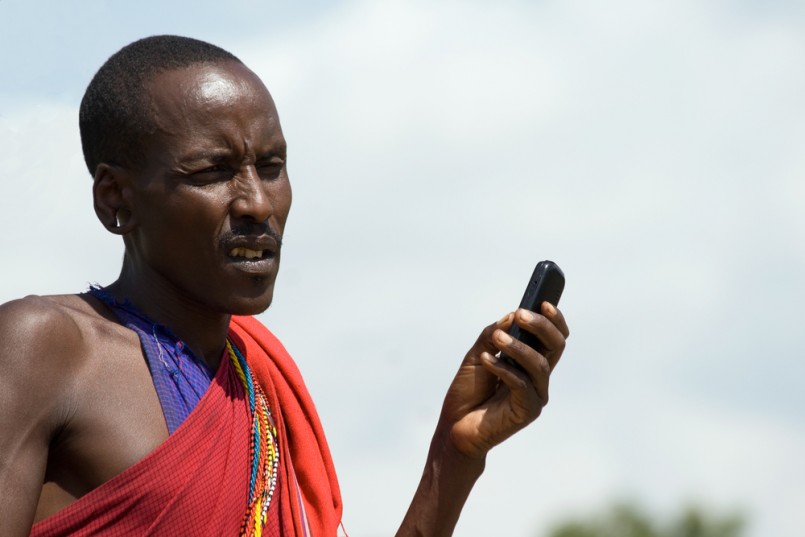Africa
Why cell phones are more important than food & electricity in Africa

Image: Shutterstock/erichon
A 2016 paper by African thinktank Afrobarometer revealed the leading infrastructure services in Africa are the following, in order of most access to least access: mobile coverage, electricity, water, roads and sewage. In most countries, individuals have smart phones, before access to electricity, running water or even a road leading out of their village. This phenomenon is often attributed to societal pressures, but is it also possible that the greedy interests of African governments and their billionaire tech partners are to blame?
Access To Jobs
In a survey of rural villages, a World Bank study revealed that residents were willing to give up food and even water in favor of a mobile phone. It’s not uncommon to find that the poor African villager and wealthy businessman have the same brand new Samsung Galaxy phone. In a society with a stark wealth gap, a mobile phone is a relatively easy to obtain symbol of status and importance.
However, the desire for a cell phone is not purely vain. Without paved roads and other infrastructure, having a phone is the only way to be notified quickly when a job comes up. The cell phone is the only connection to the world beyond the village.
But does having a cell phone really solve the problem? The aforementioned World Bank study found that while residents had cell phones, they often didn’t have the electricity to charge them or airtime to initiate or receive calls and text messages. In fact, many residents with cell phones rely on central charging stations to charge their phones rather than electricity in their residence.
Before accusing the residents of being irresponsible for choosing mobile phones over electricity and running water, it’s important to realize that these services often aren’t available. Rural villages are usually provided mobile coverage, followed by electricity and running water, with the latter two public services available only after a village has established themselves.
Tech Billionaire Interests
One could argue that the lack of basic infrastructure in favor of mobile phone coverage is the sole fault of African governments and their allies, tech companies fueled by billion dollar interests. Rather than providing electricity, water, and roads, which would cost the government millions of dollars, they provide mobile services, which are ultimately paid for by consumers. The ethics of such practices are concerning.
In fact, tech billionaire Mark Zuckerberg came under fire when Facebook offered a handful of websites and apps hand-picked by the Facebook founder and their partners under the guise of free, open Internet to 1 billion Indians living without internet access. Rather than free Internet, the residents were receiving free access to a handful of services that served billionaire interests. Similarly, residents in Africa are denied basic needs in favor of the Internet.
One could argue that the phenomenon of mobile coverage first is a blessing in disguise. After all, communities with mobile coverage are more likely to gain access to infrastructure that supports basic needs in the near future. Still, it’s impossible to wonder if tech interests will leave the developing world behind?





0 comments